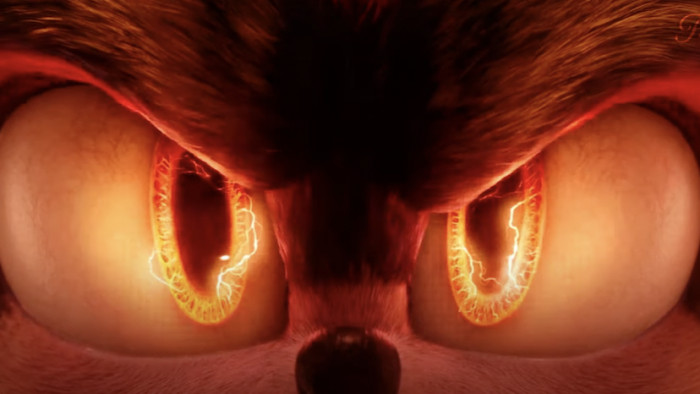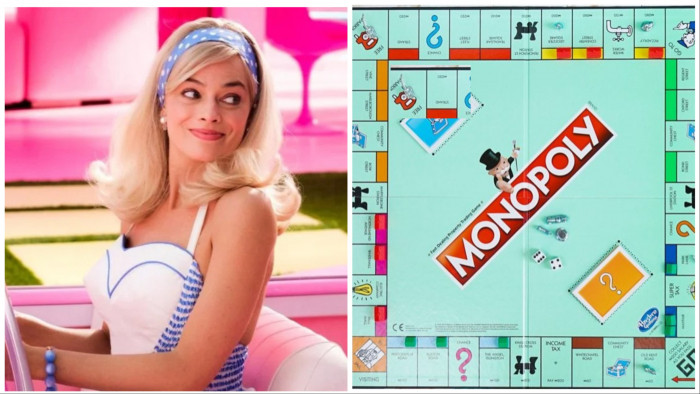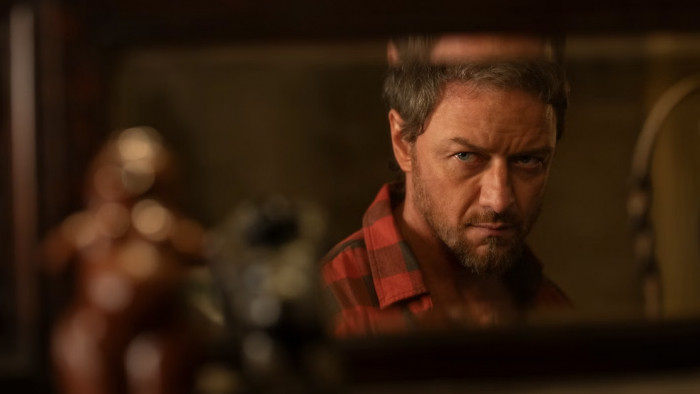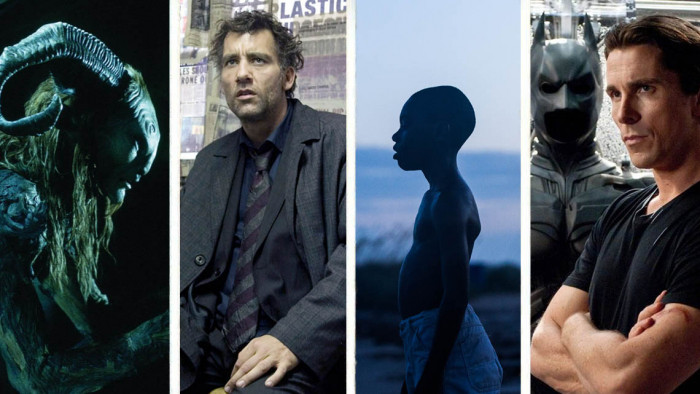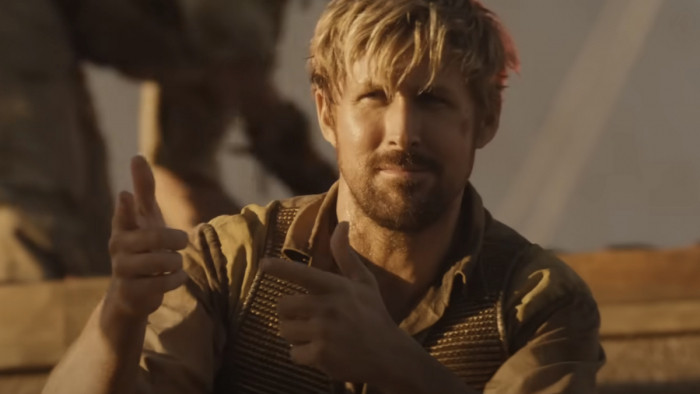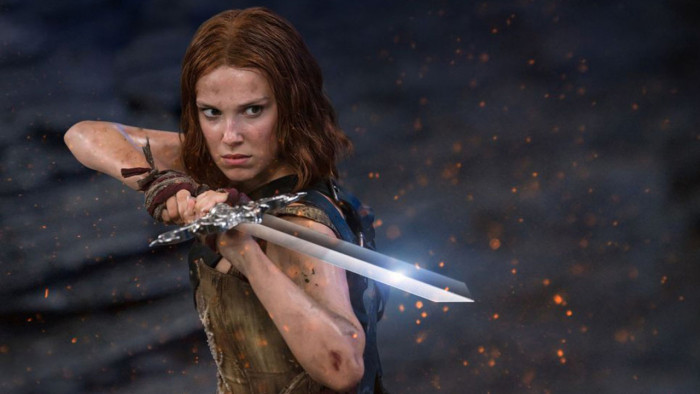Not every film star would be content with just four indie films under their belt, but then Sam Riley, as Jimi Famurewa discovers, is mapping his own alternative route to Hollywood megastardom,
It’s a crisp winter’s morning in London and, with his coat collars flicked up against the bracing cold, Sam Riley is causing quite a stir. Not by gladhanding fans and scribbling numerous autographs Tom Cruise-style, or even by smacking a lukewarm latte out of a lackey’s hand during an actorly strop.
Nope, just by standing in the shadow of Tower Bridge, idly drawing on a cigarette while ShortList takes some pictures, Riley is attracting a growing huddle of bobble-hatted pedestrians, each brandishing a cameraphone to get their own snap. Not that they’re all entirely sure who he is. “Harry Potter?” frowns one confused tourist while straining to get a better look. She couldn’t be wider of the mark. As we discover after spending a thoroughly enjoyable morning in his company, this fiercely independent former musician and Leeds lad done good is about as far from Hollywood’s juggernaut boy-wizard franchise as you can possibly get.
“I don’t want to be in the public eye,” reasons Riley, thawing out in a nearby café minutes later. “And that’s not my decision anyway. You’re put in the public eye because of the work you do, or if you’re looking for it or if you do one of those jobs everybody sees.” He sips his water and searches for the right words. “Control did really well, but there weren’t millions of people going to watch it,” he says, smiling. “It’s a black-and-white movie about a miserable guy who tops himself.”
It’s fair to say that he’s underselling his mesmerising breakout role as Ian Curtis (which we’ll come to later) in Anton Corbijn’s 2007 Joy Division biopic. But we soon learn that Riley isn’t one for overstatement or self-congratulation.In fact, from the moment we meet him at a Soho hotel earlier in the day he’s not quite what you’d expect. There’s no entourage or BlackBerry-jabbing coterie of assistants in sight as he bounds into reception with just a shoulder bag and a cheery hello in his gravelly northern tones. Not as tall as you’d expect, Riley’s deep-lidded gaze and an urchin demeanour that belies his 31 years bring to mind a less dishevelled Pete Doherty.
A ROCKY RISE
He’s nursing a hangover but seems surprisingly chipper as he pats himself down for his passport ahead of a flight back to Berlin that afternoon.His home in the hip German capital — where he moved to be with Control co-star and now wife Alexandra Maria Lara — is just one of the factors behind his arty image.
The monochrome Burberry campaign he modelled for, his stubbornly arthouse CV and a background in music are others. Will he be sullen and intense, mumbling the sort of wilfully oblique answers Eric Cantona would be proud of? On early evidence, thankfully not. But does he find that people expect him to be clutching a well-thumbed copy of Proust while shopping for a multipack of black polo necks?
“Yeah, I suppose I’ve only played the same sort of suicidal artistic types,” he says with a laugh. “That’s my thing, bit of black-and-white cinematography and a cigarette hanging out of my mouth. I shouldn’t really give myself too tiny a niche,” he flashes a smile. “But it’s just so much fun to play somebody who’s horrible.”
About to join his reverence-free portrayal of Ian Curtis in a growing catalogue of tortured characters is his intense turn as face-slashing hoodlum Pinkie Brown in Rowan Joffe’s stylishly visceral update of Graham Greene’s classic Brighton Rock.
The Sixties-set slice of British noir is now a compelling highlight on a largely bare IMDb entry. He’s famously selective about his roles — he’s only made three films since Control — so what attracted him to Brighton Rock?
“Every actor’s looking for work because you’ve got to pay the bills,” he says. “Plus [Pinkie’s] an iconic, British fictional character. I don’t think anyone my age could have said no to it, really.”
He identifies Johnny Depp’s career as one he’d like to emulate (“There’s something great about being able to do Disney movies without anyone accusing you of sucking Satan’s c*ck”), but he’s clearly wary of being chewed up and spat out by the Hollywood machine.
“When my band was going I learned what it was like to be touted as going places and then to have the rug ripped out from under you overnight,” he says, reflecting on his first flirtation with fame fronting indie band 10,000 Things. “So I was a bit wary when people started saying I was the next big thing or whatever. Don’t get me wrong, it’s exactly what you want, but at the same time I felt a little bit like I’d seen that label get thrown around a lot.”
It’s clear that Riley’s still stung by the implosion of his music career and he shakes his head ruefully when we ask him about his band’s reputation for confrontational live shows. “There was one gig in Liverpool when I had to leave out of a fire exit and jump in the van,” he says laughing. “A review in The Guardian said I was like a cross between Bernard Manning and Paul Calf and that I opened by calling a member of the front row a c*nt.”
Disillusioned with music after another poisonous album review effectively ended the band, Riley bounced around bar jobs (“The problem was I used to sup what I earned”) before landing a job at a factory folding T-shirts for a living.
It was at this point that he reflected on the childhood obsession that prompted a fledgling career as an actor (“Every time I’d watch a movie I liked as a kid I’d have a mini obsession about it and try to dress like the people that were in it. After Lawrence Of Arabia, my mum would be going, ‘Where’s my best tea cloth?’”) and put in the phone call that changed his life. “I rang this agent I’d had when I was younger [Riley was a member of the National Youth Theatre] and said that I wanted to give it another try,” he says. Before long he was practising Ian Curtis’s iconic arm-jigging dance in the toilet mirror prior to an audition, and soon found himself performing as Joy Division in front of assembled superfans for Control’s electrifying gig scenes. Did his real-life experience as a rock frontman help?
“Well, it was pretty daunting,” he admits, wincing at the memory. “I think there were about 200 people at the first gig. I came out of my trailer and this guy came up to me and he went, ‘Are you Ian, then?’” He lets out a laugh. “I was like, ‘For the next few weeks I will be.’ And he went, ‘Well I saw ’em 10 times mate, so this had better be f*cking good.’ That was it, I was straight back in the trailer, puking up.”
Things didn’t get better inside either as Riley describes a fan in the front row with a thousand-yard stare who lifted his shirt to show off a tattoo of Ian Curtis’s face. “It was like in I’m Alan Partridge when he goes round to that guy’s house and he’s got Alan’s face on him. Then Harry [Treadaway], who played the drummer, went, ‘You’ve got enough room on the other tit for one of Sam after this.’”
ON THE ROAD AGAIN
Riley’s role passed muster with the aggressively inked Joy Division aficionados, but his next big role has plenty of baggage too. He’s just returned from six months playing Jack Kerouac alter ego Sal Paradise in a film version of On The Road, which has finally been hauled out of production hell by The Motorcycle Diaries director Walter Salles.
“It was a monster,” he says wearily. “A hard shoot for everybody, but it’s a dream gig as well. It’s been attempted lots of times. Jean-Luc Godard was going to do it with Dennis Hopper in the Sixties, Francis Ford Coppola, who’s the executive producer on this one, was going to do it, Gus Van Sant too. When we got there we had a ‘beatnik boot camp’ to get us all ship-shape on everything jive, learning the lingo, listening to Charlie Parker, watching documentaries and having rehearsals too.”
Is he worried about attempting something so sprawlingly iconic? “There are going to be a lot of haters out there because the book means a lot to people,” he shrugs. “But you can’t make your decisions on what a blogger is going to say. I’ve got to earn my keep and I’d have been an idiot to say, ‘I’d better not do this because some people might not like it.’”
He’s trying to block out the din of the internet but sheepishly admits that he still occasionally Googles his own name. “I’m not completely clean because sometimes it’s just irresistible,” he says. “It’s like
scratching a scab.” Luckily, he seems to be accepting more roles, which will leave less time for self-Googling. Does he feel like he’ll ever have to take a role purely for the money? “There’s always that worry,” he says. “If I haven’t worked for a while I’m thinking, ‘I’m too fussy. I should have said yes to that McDonald’s commercial.’” But he says that his wife — whom he likens to a German Keira Knightley — has given him the benefit of her 15 years’ acting experience.“I’m ambitious to an extent, but I’m not obsessed with working,” he explains. “Her advice and support are priceless to me. I’m a lad so I won’t say certain things if I think they’ll rock the boat. Sometimes you’ve got to or you end up wearing leopard-print pants on the cover of a magazine.” He’s clearly besotted with Alexandra, nipping off at various stages to speak to her on the phone in broken German. He sees Berlin as “a sanctuary” and they spend their time there grappling over the house stereo (“We battle it out between her Eighties pop and my blues, or ‘pretentious music’ as she calls it”) and heading to a specialist UK food shop he’s dubbed ‘Little Britain’ to sate his Ribena cravings. He’s trying to quit smoking too, but reaches for his packet again as our photographer sets up another shot outside and our interview draws to a close. We’ve got time for one more question and, almost idly, we ask him how he received the distinctive scar on his chin.
“That was a kerb,” he says rubbing it. “It’s not all that exceptional for someone from Leeds to have a visible beer injury. Can you see that ring on my hand, too? That was a flaming sambuca I left my hand on. Just a reminder to not be f*cking stupid.” An incredibly talented arthouse film star proudly showing off the scars of youthful boozing?
It’s just another sign that Sam Riley is a very different kind of leading man. And as he wanders outside and weaves through the crowd for his final shots, you can’t help but feel that the relative anonymity he enjoys isn’t going to be an option pretty soon.
Brighton Rock is at cinemas nationwide from 4 February
Latest
Related Reviews and Shortlists



